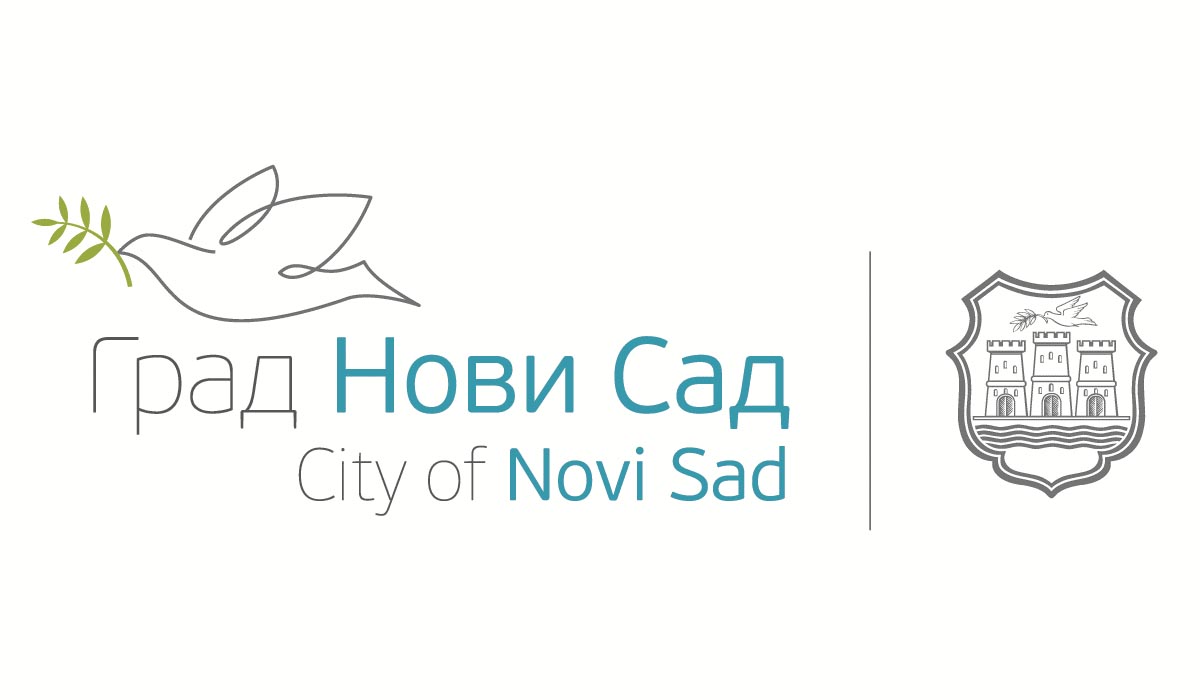YUGOSLAVIA AND EUROCOMMUNIST PARTIES DURING THE ‘LONG YEAR’ OF EUROPEAN DEMOCRATIC SOCIALISM (1974–1976)
DOI:
https://doi.org/10.19090/i.2024.35.236-254Keywords:
Eurocommunism, democratic socialism, welfare state, Cold War, League of Communists of Yugoslavia, Josip Broz Tito, Enrico BerlinguerAbstract
In the late 1960s and early 1970s, Mediterranean communist parties’ political practices and party ideologies, the League of Communists of Yugoslavia’s (LCY) policies, and the socialist model of the Yugoslav state, underwent gradual changes according to similar principles. This allowed existing cooperation between the LCY and future Eurocommunist parties to expand. At this time, the countries of Western Europe were experiencing a period of unprecedented economic growth and a reduction in social inequalities. This period eventually ended in political turmoil and crisis caused by ideological and cultural changes significantly driven by the same long-term consequences of developing welfare state models in the Western Bloc’s largest economies. A new social reality in Western Europe, the Mediterranean region, and Yugoslavia, the Mediterranean’s closest socialist country, would influence the events leading to the zenith of the LCY’s influence on the European far left and also to the eventual downfall of the international leftist initiatives launched by the LCY and the Eurocommunist parties. This article will present findings from archival research regarding certain aspects that may have influenced these changes in the international positions of and relations between the LCY and the Eurocommunist parties. It will compare it to those of previous studies within the humanities and social sciences.
Downloads
References
Sources:
Archives of Yugoslavia
Archive of Central Committee of LCY, International Commissions, Department for international relations and connections: Italy, France, Spain and Greece.
Archive of Josip Broz Tito, Cabinet of the President of the Republic.
Socialist Union of the Working People of Yugoslavia.
Ideological Commission of Central Committee of LCY.
Diplomatic Archive of Ministry of Foreign Affairs
Political Archive of the Federal Secretariat of Foreign Affairs: Italy, France, Greece.
References:
Andry, A. ‘Social Europe’, in the long 1970-The story of a defeat, Florence: European University Institute, 2019.
Bajin, Z. ‘Jugoslovenski komunisti i španska revolucionarna emigracija 1945–1975’, Istorija 20. veka, XLI, 1, 2023, 117–138. DOI: https://doi.org/10.29362/ist20veka.2023.1.baj.117-138
Bakić, J. Evropska krajnja desnica 1945-2018, Beograd: Klio, 2019.
Berend, I. Ekonomska istorija Evrope u XX veku, Beograd: Arhipelag, 2009.
Brogi, A.’US Anti-communism in France and Italy’, Journal of Contemporary History, 1, 2018, 134–157. DOI: https://doi.org/10.1177/0022009416678919
Crewe, I. ‘On the Death and Resurrection of Class Voting’, Political Studies, 34, 1986, 620–638. DOI: https://doi.org/10.1111/j.1467-9248.1986.tb01617.x
Dimić, Lj, Jugoslavija i Hladni rat: Ogledi o spoljnoj politici Josipa Broza Tita 1944–1964. Beograd: Arhipelag, 2014.
Dimić, Lj. ‘Josip Broz Tito, Yugoslav policy and the formation of the concept of European security, 1968–1975’ in: M. Kosanović and V. Bilandzic (eds.) From Helsinki to Belgrade: the First CSCE follow-up meeting and the crisis of détente, Bonn: Bonn University Press, 2012, 59–81.
Drake, R. ‘Italian Communism and Soviet Terror’, Journal of Cold War Studies, 6, 2006, 47–63. DOI: https://doi.org/10.1162/152039704773254768
Filipović, L. ‘Finansijska politika Saveza komunista Jugoslavije prema komunističkim partijama Italije, Francuske, Španije i Grčke krajem šezdesetih godina 20. veka’, Istorija 20. veka, 2, 2022, 477–494. DOI: https://doi.org/10.29362/ist20veka.2022.2.fil.477-494
Filipović, L. Evrokomunizam i Jugoslavija. Novi Sad: Akademska knjiga, 2023.
Goldthorpe, J. H. ‘The Affluent Worker and the Thesis of Embourgeoisment: Some preliminary research findings’, Sociology, 1, 1967, 11–37. DOI: https://doi.org/10.1177/003803856700100102
Kriegel A. ‘The present theory of power of the French Communist Party’, Government and Opposition, 2, 1967, 253–268. DOI: https://doi.org/10.1111/j.1477-7053.1967.tb01165.x
Kuljić, T. Fašizam, Beograd: Nolit, 1977.
Macdonald, D. ‘Communist Block Expansion in the Early Cold War: Challenging Realism, Refuting Revisionism’, International Security, 20, 1996, 152–188. DOI: https://doi.org/10.2307/2539142
McGregor, J. P. ‘The 1976 European Communist Party Conference’, Studies in Comparative Communism, 11, 1978, 339–360. DOI: https://doi.org/10.1016/0039-3592(78)90001-7
Mijatov, N. Milovan Đilas i evropski socijalisti (1950–1958). Beograd: Institut za savremenu istoriju, 2019.
Miletić, A. ‘Political Parties and Movements as Alternative Options for Yugoslavia’s Policy of International Cooperation’, in: S. Mičič and J. Čavoški (eds.) On The Fault Lines of European and World Politics: Yugoslavia Between Alliances and Neutrality/Non-Alignmet Beograd: Institut za noviju istoriju Srbije, 2022, 289–333.
Mišić, S. ‘Obnavljanje odnosa između Saveza komunista Jugoslavije i Komunističke partije Italije 1955-1956. godine’, Tokovi istorije, 2, 2013, 121–145. DOI: https://doi.org/10.31212/tokovi.2013.2.mis.121-145
Morand, K. ‘Post-War Trends in the École de Paris’, The Burlington Magazine, 102, 1960, 167–192.
Mouzelis, N. ‘Capitalism and Dictatorship in Post-War Greece’, in: N. Mouzelis, Modern Greece, London: Palgrave Macmillan, 1978, 115–133. DOI: https://doi.org/10.1007/978-1-349-03509-0_7
Moynihan, D. ‘Poverty and Progress’, The American Scholar, 33, 1964, 594–606.
Obinger, H. and Schmitt, C. ‘Guns and butter? Regime Competition and the Welfare state during the Cold War’, World Politics, 63, 2011, 246–270. DOI: https://doi.org/10.1017/S0043887111000025
Osadczuk-Korab, B. A. ‘Brezhnev's Pyrrhic Victory: The Pan-European Conference of Communists in East Berlin’, International Journal, 32, 1976, 178–193. DOI: https://doi.org/10.1177/002070207703200109
Petersen, K. and Mioni, M. ‘The Cold War and Welfare State in the Western Europe’, in: F. Nullmeier, (ed.) International Impacts on Social Policies, London: Palgrave Macmillan, 2022, 43–59. DOI: https://doi.org/10.1007/978-3-030-86645-7_5
Pons, S. ‘Stalin, Togliatti and the Origins of Cold War in Europe’, Journal of Cold War Studies 3, 2001, 3–27. DOI: https://doi.org/10.1162/152039701300373862
Popov, M. ‘Eurocommunism and Pan-European Conference’, The World Today, 32, 1976, 387-392. DOI: https://doi.org/10.1016/S0019-9958(76)90300-4
Raymond, G. The French Communist Party During the Fifth Republic – A Crisis of Leadership and Ideology, London: Palgrave Macmillan, 2009.
Salt, J. ‘Post-War Unemployment in Britain: Some Basic Considerations’, Transactions of the Institute of British Geographers 46, 1969, 93–103. DOI: https://doi.org/10.2307/621410
Sassoon, D. ‘The rise and fall of the European Communism 1939-1948’, Contemporary European History 2, 1992, 139–169. DOI: https://doi.org/10.1017/S0960777300004410
Sekelj, L. Jugoslavija, Struktura raspadanja, Beograd: Rad, 1990.
Testa, C. ‘The Working Class Goes to Hell: Economic Issues in Post-War Italian Cinema’, Annali d'Italianistica, 30, 2012, 343–354.
Weller, L. and Sant’Ana, A. ‘The Threat of Communism during the Cold War: A constraint to social inequality’ New York: CEDE, 2019.
Živković, B. ‘Inspiring Dissent: Yugoslavia and the Italian Communist Party during 1956’, Tokovi istorije, 3, 2021, 171–198. DOI: https://doi.org/10.31212/tokovi.2021.3.ziv.171-198
Downloads
Published
How to Cite
Issue
Section
License
Copyright (c) 2024 ISTRAŽIVANJA, Јournal of Historical Researches

This work is licensed under a Creative Commons Attribution-ShareAlike 4.0 International License.













